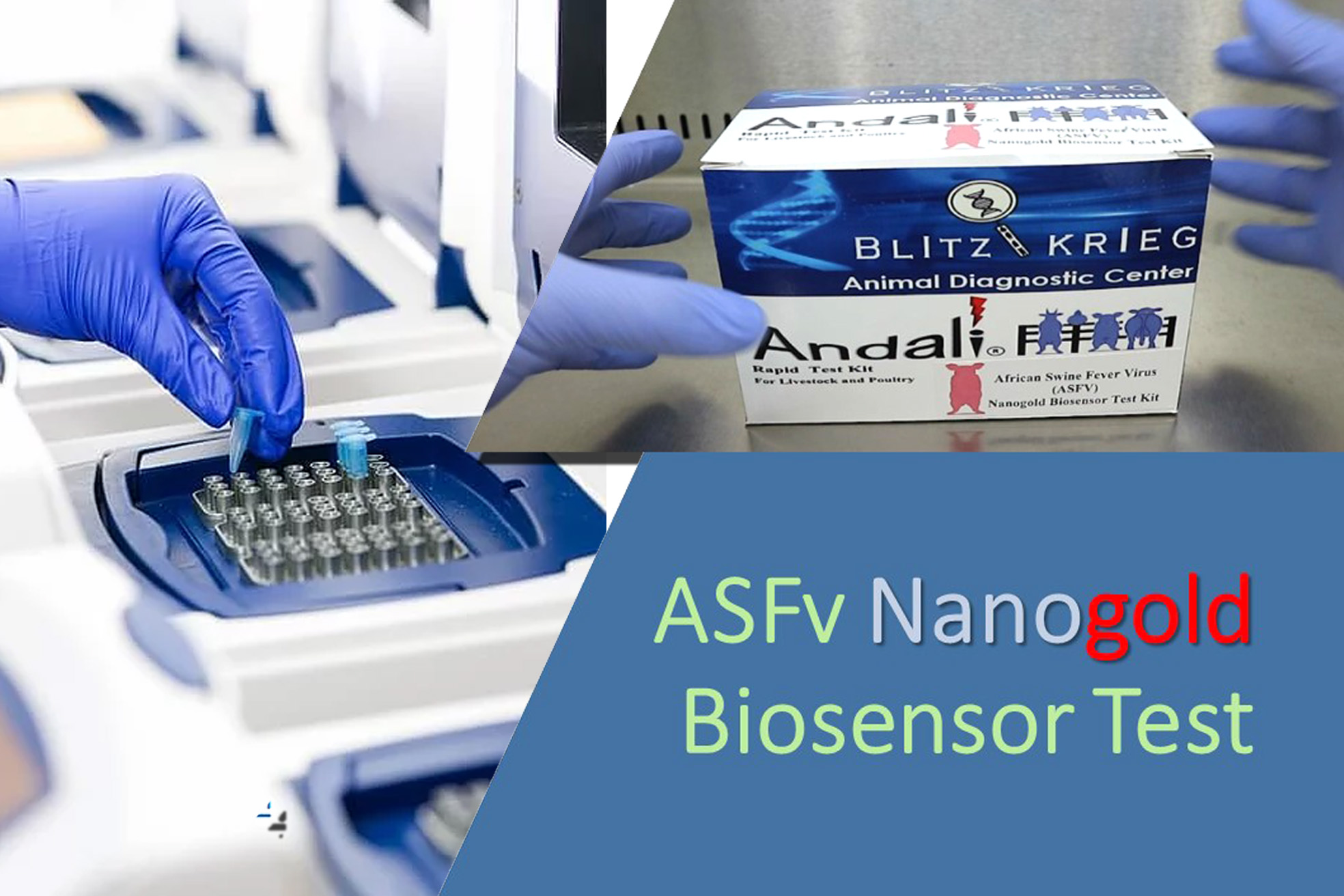
As part of the current nationwide biosecurity and surveillance program, aptly called “BABay ASF” (Bantay ASF sa Barangay), the Department of Agriculture (DA) is initially allotting P80 million (M) for the development and mass production of Filipino-made test kits that can detect the dreaded African Swine Fever (ASF) faster and cheaper.
“We are allocating an initial P80 million through the DA-National Livestock Program (NLP) and Bureau of Animal Industry (BAI) to mass-produce and distribute to local government units (LGUs) the test kit, called “ASFV Nanogold Biosensor,” said Agriculture Secretary William Dar.
“We commend the team from the Central Luzon State University (CLSU) in partnership with the DA’s Bureau of Animal Industry (BAI) who developed the ASF rapid test kit,” the DA chief added.
Secretary Dar said part of the P80-M budget for the “BABay ASF” program will be provided by the DA-Bureau of Agricultural Research (BAR) to augment the mass production of test kits in partnership with other interested private firms and state universities and colleges (SUCs).
The CLSU-BAI team will soon acquire robotic equipment to efficiently mass-produce the test kit, said DA-NLP overseer and DA Undersecretary for Livestock Dr. William Medrano. Secretary Dar tasked him and the DA-NLP team to pursue discussions with SUCs and pharmaceutical companies to help mass-produce the ASF test kits.
“With this development, the DA-BAI personnel and LGU veterinarians can now administer the kit for biosecurity measures, profiling of farms for repopulation, and surveillance and monitoring activities, at a much faster rate right at the so-called ‘ground-zero’ and more economical,” the DA chief said.
“We can even have these test kits on standby at the port of entries for a quick sampling of the meat products entering the country,” he added.
The kit was developed by Dr. Clarissa Yvonne Domingo of CLSU, in collaboration with the DA-BAI, noting that the test kits are easy to use and can differentiate ASF virus from hog cholera and other swine-related viruses.
The rapid test kits utilize nucleic acid-based test. It has a built-in DNA extraction and molecular amplification process that utilizes primers or markers, whose gene sequence was designed from the P72 gene of the ASF virus isolated from the province of Rizal.
In fact, it can detect the presence of ASF even through surface swabbing of pig barns and delivery trucks, saliva, and nasal swabs, feces, water, semen, feeds, aspirated whole blood, or blood-soaked swabs, and even domestic flies.
The ASF test kit, which comes with all the consumables, costs P3,500, good for 10 samples or P350 per sample.
Furthermore, each sample can be a pool of five surface swabs, saliva, or feces as long as these come from the same pen or farm for traceability. Thus, the cost is simply P70 per sample.
To ensure efficacy, the test kits were tested on surface swabs taken from nipple drinkers, walls, railings, floors, and pig ways of barns; water samples of farms; ASF contaminated floor sweepings and feeds; saliva, nasal swabs, and feces of pigs; processed, fresh and canned meat that were confiscated at the airport and domestic flies that alighted on dead carcasses.
It was also tested in 32 commercial and nine backyard farms in Bulacan, Rizal, Laguna, Pampanga, Tarlac, Pangasinan, and Nueva Ecija.
Preliminary results showed high accuracy and detection rate using the test kits.
For its part, the DA-BAI offers free ASF testing, while private laboratories charge about P3,000 per test.
Results of BAI laboratory tests for priority areas can be obtained within the day, but analysis usually takes two working days.
Meanwhile, upon learning that Vietnam has developed a vaccine against ASF, he instructed undersecretary Medrano to immediately coordinate with their counterparts in said country and acquire the vaccine for clinical and field tests in the country. ### (Patrick Lesaca, DA StratComms)














